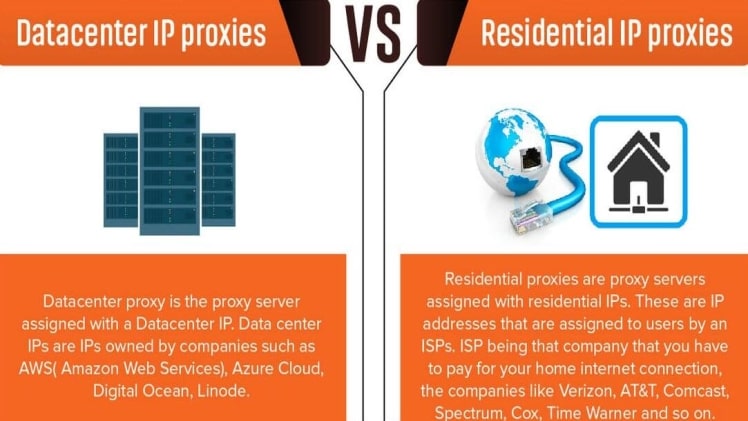Residential vs. Other Types of Proxy Servers: What’s the Difference?

What is a Proxy Server
When it comes to using a proxy server to access the internet, there are several different types to choose from. One of the main differences between these types of proxy servers is the type of IP address that they use. click here for more info from Tattoo
When it comes to using a proxy server to access the internet, there are several different types to choose from. One of the main differences between these types of proxy servers is the type of IP address that they use. Understanding the differences between these types of proxy servers can help you determine which one is best suited for your specific needs.
Residential and other types of proxies
Residential proxy servers use an IP address that is associated with a physical location, such as a home or office. This type of IP address is typically assigned to an individual by their internet service provider (ISP). The use of a residential IP address makes it more difficult for websites and servers to detect and block the proxy, as it appears to be a legitimate user accessing the site from a residential internet connection. Residential proxy servers are often used for tasks that require a high level of anonymity, such as web scraping, SEO analysis, and online market research. Such proxies are available at https://proxy-seller.com.
On the other hand, there are several other types of proxy servers that do not use a residential IP address. These include:
- Datacenter proxy servers: These proxy servers use an IP address that is associated with a datacenter, rather than a physical location. They are often used for tasks that require a high level of anonymity, such as web scraping and SEO analysis. However, they are more easily detected and blocked by websites and servers, as they are commonly associated with proxy servers.
- Mobile proxy servers: These proxy servers use an IP address that is associated with a mobile device, such as a smartphone or tablet. They are often used to access content that is restricted to a specific geographic location, or to simulate the use of a mobile device when accessing the internet.
- VPN proxy servers: A VPN (virtual private network) proxy server is a type of proxy server that uses encryption to secure the connection between the user and the internet. They are often used to protect against cyber threats such as hacking and surveillance, and to access content that is restricted based on the user’s location.
When deciding which type of proxy server to use, it is important to consider your specific needs and requirements. Residential proxy servers are a good choice for tasks that require a high level of anonymity, while datacenter, mobile, and VPN proxy servers may be more suitable for other tasks or to access specific types of content. Understanding the differences between these types of proxy servers can help you choose the one that is best suited for your needs.
Visit here for more description about: What Color Is Math
Conclusion
In summary, the main difference between residential and other types of proxy servers is the type of IP address that they use. Residential proxy servers use an IP address that is associated with a physical location, which makes them more difficult to detect and block. Other types of proxy servers, such as datacenter, mobile, and VPN proxy servers, use different types of IP addresses and are often used for specific tasks or to access specific types of content.










